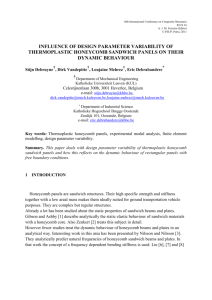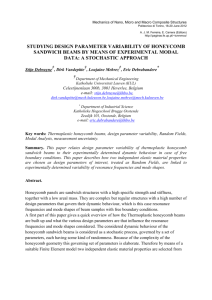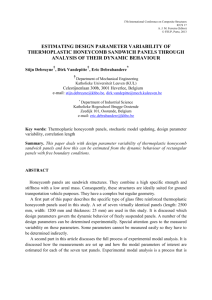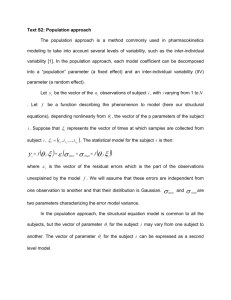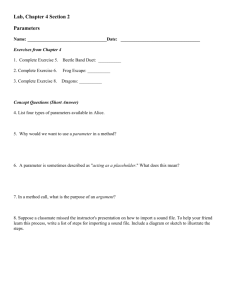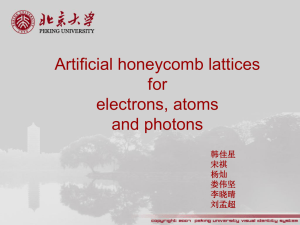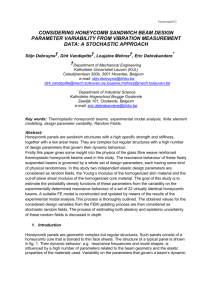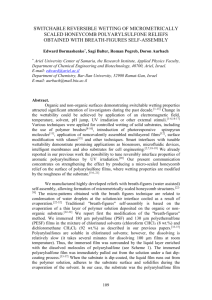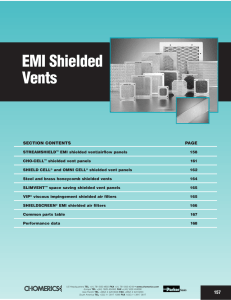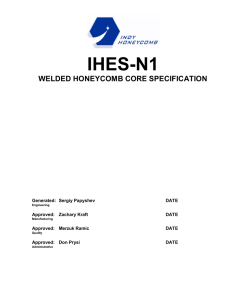instructions to prepare a paper for the european congress on
advertisement
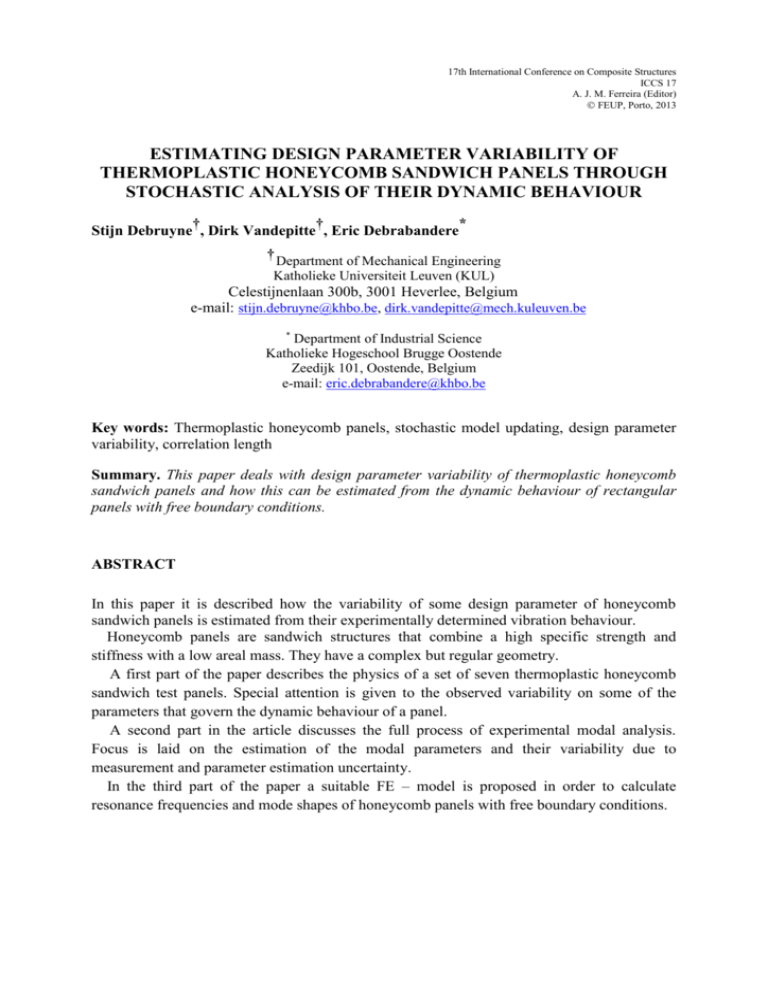
17th International Conference on Composite Structures ICCS 17 A. J. M. Ferreira (Editor) FEUP, Porto, 2013 ESTIMATING DESIGN PARAMETER VARIABILITY OF THERMOPLASTIC HONEYCOMB SANDWICH PANELS THROUGH STOCHASTIC ANALYSIS OF THEIR DYNAMIC BEHAVIOUR Stijn Debruyne†, Dirk Vandepitte†, Eric Debrabandere* † Department of Mechanical Engineering Katholieke Universiteit Leuven (KUL) Celestijnenlaan 300b, 3001 Heverlee, Belgium e-mail: stijn.debruyne@khbo.be, dirk.vandepitte@mech.kuleuven.be * Department of Industrial Science Katholieke Hogeschool Brugge Oostende Zeedijk 101, Oostende, Belgium e-mail: eric.debrabandere@khbo.be Key words: Thermoplastic honeycomb panels, stochastic model updating, design parameter variability, correlation length Summary. This paper deals with design parameter variability of thermoplastic honeycomb sandwich panels and how this can be estimated from the dynamic behaviour of rectangular panels with free boundary conditions. ABSTRACT In this paper it is described how the variability of some design parameter of honeycomb sandwich panels is estimated from their experimentally determined vibration behaviour. Honeycomb panels are sandwich structures that combine a high specific strength and stiffness with a low areal mass. They have a complex but regular geometry. A first part of the paper describes the physics of a set of seven thermoplastic honeycomb sandwich test panels. Special attention is given to the observed variability on some of the parameters that govern the dynamic behaviour of a panel. A second part in the article discusses the full process of experimental modal analysis. Focus is laid on the estimation of the modal parameters and their variability due to measurement and parameter estimation uncertainty. In the third part of the paper a suitable FE – model is proposed in order to calculate resonance frequencies and mode shapes of honeycomb panels with free boundary conditions. Stijn Debruyne, Dirk Vandepitte and Eric Debrabandere. It is outlined how the (elastic) parameters of the homogenized FE – model (using orthotropic material properties for both skin faces and honeycomb core) are obtained from the real physical parameters of skin faces and honeycomb core. These are the Young’s moduli of both skin faces in length and width direction and the two relevant out-of-plane shear moduli of the homogenized honeycomb core. It is extensively discussed how stochastic model updating is applied to deal with the specific problem of underdetermined model updating. The fourth part of the article describes how the dynamic behaviour of a honeycomb panel can be regarded as a stochastic process that is governed by a set of stochastic variables. Taking into account the whole set of test samples, each of the considered elastic model parameters is treated as a stochastic random field. Both epistemic and aleatory uncertainty are estimated and discussed. The implementation of the random field method is also validated. Furthermore, the correlation length of each parameter is estimated from the estimated covariance matrices. Finally, the relation between model parameter variability and physical parameter variability is discussed and general conclusions are made. 2
